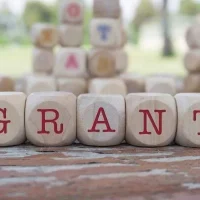Deadline: 06-Oct-21
The European Commission (EC) is pleased to announce the EU approach to assess and internalise positive and negative externalities of food for incentivising sustainable choices.
Proposals should follow a ‘multi-actor approach’, pilot a ‘community of practice’ and convene policy dialogues engaging researchers, policymakers and other relevant actors from across farming and food systems on land and at sea (e.g., farmers, fishers, downstream and upstream businesses, retailers, hospitality operators, consumers, financial institutes, NGOs, etc.) that are involved on the ground in identifying, measuring and putting a monetary value on the positive and negative climate, biodiversity, environmental, social and health externalities of food.
A balanced coverage of the EU contexts and the inclusion of a wide range of viewpoints (i.e., from ‘believers’ to ‘sceptics’) and relevant projects/initiatives at different levels, from local to global, are essential.
Based on an in-depth review of the state-of-the-art (including scientific evidence, diverse projects and initiatives, and, for example, existing natural capital accounting), proposals should scrutinise various approaches to: identifying, assessing and monetarising positive and negative climate, biodiversity, environmental, social and health externalities of food; and measuring degrees of internalisation (i.e., what parts of various costs and benefits are already internalised in the current context).
Proposals should explore possible ways to improve, harmonise and operationalise these approaches in practice.
They should also map and analyse gaps in existing databases, and collect data needed to assess the externalities, in such a way that they can be used for several purposes (e.g., footprint analysis).
Proposals may identify a comprehensive set of case studies (e.g., based on a comprehensive ‘hotspot’ analysis) and demonstrate the usefulness of various approaches and databases in practice.
Funding Information
The check will normally be done for the coordinator if the requested grant amount is equal to or greater than EUR 500 000, except for:
- public bodies (entities established as a public body under national law, including local, regional or national authorities) or international organisations; and
- cases where the individual requested grant amount is not more than EUR 60 000 (lowvalue grant).
Expected Outcomes
Projects results are expected to contribute to all of the following expected outcomes:
- better understanding by policymakers, businesses and other actors in farming and food systems on land and at sea, of challenges and opportunities in relation to the internalisation of climate, environmental, social and health externalities of food at various levels (e.g., policy, product, organisational, farm, and investment) and in different contexts;
- well-informed policy at local, regional, national and EU levels on the possible ways of steering primary producers’, businesses’ and consumers’ decision-making towards sustainable options by assessing and valuing the externalities of food (including using subsidies, taxes, incentives, etc.);
- widespread use by policymakers, farmers and businesses of improved and harmonised approaches to identify, measure and value the positive and negative climate, biodiversity, environmental, social and health impacts of food; and
- better internalisation of the positive and negative climate, biodiversity, environmental, social and health externalities of food, so that the most sustainable and healthy food becomes the most affordable and available for consumers, while generating fair economic returns in the supply chain, in particular for primary producers and SMEs.
Eligibility Criteria
To be eligible for funding, applicants must be established in one of the eligible countries, i.e.:
- the Member States of the European Union, including their outermost regions;
- the Overseas Countries and Territories (OCTs) linked to the Member States;
- eligible non-EU countries:
- countries associated to Horizon Europe;
- low- and middle-income countries.
For more information, visit https://bit.ly/36dPbD4






![Call for Applications: “Voices in Motion” Program [Sri Lanka] - fundsforNGOs Call for Applications: “Voices in Motion” Program [Sri Lanka]](https://www2.fundsforngos.org/wp-content/uploads/2023/04/dance-200x200.jpg)


































